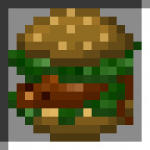Not a member of Pastebin yet?
Sign Up,
it unlocks many cool features!
- ----strings API-------
- --- Various utilities for working with strings and text.
- --
- -- @module cc.strings
- -- @see textutils For additional string related utilities.
- local expect = require "cc.expect".expect
- --[[- Wraps a block of text, so that each line fits within the given width.
- This may be useful if you want to wrap text before displaying it to a
- @{monitor} or @{printer} without using @{_G.print|print}.
- @tparam string text The string to wrap.
- @tparam[opt] number width The width to constrain to, defaults to the width of
- the terminal.
- @treturn { string... } The wrapped input string as a list of lines.
- @usage Wrap a string and write it to the terminal.
- term.clear()
- local lines = require "cc.strings".wrap("This is a long piece of text", 10)
- for i = 1, #lines do
- term.setCursorPos(1, i)
- term.write(lines[i])
- end
- ]]
- local function wrap(text, width)
- expect(1, text, "string")
- expect(2, width, "number", "nil")
- width = width or term.getSize()
- local lines, lines_n, current_line = {}, 0, ""
- local function push_line()
- lines_n = lines_n + 1
- lines[lines_n] = current_line
- current_line = ""
- end
- local pos, length = 1, #text
- local sub, match = string.sub, string.match
- while pos <= length do
- local head = sub(text, pos, pos)
- if head == " " or head == "\t" then
- local whitespace = match(text, "^[ \t]+", pos)
- current_line = current_line .. whitespace
- pos = pos + #whitespace
- elseif head == "\n" then
- push_line()
- pos = pos + 1
- else
- local word = match(text, "^[^ \t\n]+", pos)
- pos = pos + #word
- if #word > width then
- -- Print a multiline word
- while #word > 0 do
- local space_remaining = width - #current_line - 1
- if space_remaining <= 0 then
- push_line()
- space_remaining = width
- end
- current_line = current_line .. sub(word, 1, space_remaining)
- word = sub(word, space_remaining + 1)
- end
- else
- -- Print a word normally
- if width - #current_line < #word then push_line() end
- current_line = current_line .. word
- end
- end
- end
- push_line()
- -- Trim whitespace longer than width.
- for k, line in pairs(lines) do
- line = line:sub(1, width)
- lines[k] = line
- end
- return lines
- end
- --- Makes the input string a fixed width. This either truncates it, or pads it
- -- with spaces.
- --
- -- @tparam string line The string to normalise.
- -- @tparam[opt] number width The width to constrain to, defaults to the width of
- -- the terminal.
- --
- -- @treturn string The string with a specific width.
- -- @usage require "cc.strings".ensure_width("a short string", 20)
- -- @usage require "cc.strings".ensure_width("a rather long string which is truncated", 20)
- local function ensure_width(line, width)
- expect(1, line, "string")
- expect(2, width, "number", "nil")
- width = width or term.getSize()
- line = line:sub(1, width)
- if #line < width then
- line = line .. (" "):rep(width - #line)
- end
- return line
- end
- return {
- wrap = wrap,
- ensure_width = ensure_width,
- }
Add Comment
Please, Sign In to add comment

